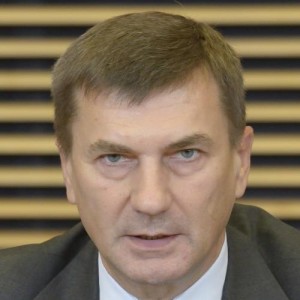BEREC issues net neutrality guidelines
The Body of European Regulators for Electronic Communications (BEREC) has issued guidelines for how regulators in Europe should implement new net neutrality rules.
The guidelines, which are designed to give guidance to National Regulatory Authorities (NRAs), follow a six-week consultation period during which BEREC received an “unprecedented” number of contributions – some 481,547 in total.
BEREC said it took into account the many responses in finalising its guidelines, but claimed that the varying views on whether the regulation body should be more or less prescriptive on certain topics indicated its “initial approach had struck an appropriate balance”.
The publication follows the agreement last year on net neutrality rules by the European Parliament and Council, designed to “guarantee an open internet” and ban paid-prioritisation of web traffic, or internet ‘fast lanes’.
ISPs are prohibited from blocking or slowing down of Internet traffic, with three clearly defined exceptions: compliance with other laws; preservation of integrity and security; and congestion management measures.
Under the rules, ‘specialised services’, optimised for specific content – such as live broadcasting IPTV services or high-quality voice calling on mobile networks – are permitted.
However, only when these services meet the requirements for a specific level of quality, and if network capacity is sufficient that the general quality of web access is not degraded. It will be down to individual regulators to decide this on a case-by-case basis.
“Our rules, and today’s guidelines, avoid fragmentation in the single market, create legal certainty for businesses and make it easier for them to work across border,” said European Commission vice-president Andrus Ansip and European commissioner Günther Oettinger in a statement.
“They also ensure that the internet remains an engine for innovation and that advanced technologies and Internet of Things services like connected vehicles as well as 5G applications are developed today, and will flourish in the future.”
However, Cable Europe, the association representing broadband cable operators, said it was important that the regulation is implemented “in the spirit as well as the letter” and urged caution in the use of the new guidelines.
“Much rests now on the use of these guidelines by regulators, which whilst allowing National Regulatory Authorities the necessary autonomy could result in a negative outcome for progressive innovation,” said Cable Europe executive chairman, Matthias Kurth.
“We urge the NRAs to embrace the ambitions of the Digital Single Market, and look forward to working with them as we turn the potential of Europe’s digital future into a reality”.
French telecom regulator ARCEP, which contributed to the year-long work of drafting the new guidelines, welcomed the adoption of the document.
In a statement, it said: “The guidelines provide NRAs with a clear roadmap for enforcing the regulation. Regulators are required to act as net neutrality’s watchdogs, ensuring compliance from operators and, if necessary, imposing penalties when they fail to comply.”
The EDRi, an association of civil and human rights organisations from across Europe, also welcomed the publication of the guidelines, with executive director Joe McNamee proclaiming Europe to be “a global standard-setter in the defence of the open, competitive and neutral internet.
“We congratulate BEREC on its diligent work, its expertise and its refusal to bend to the unreasonable pressure placed on it by the big telecoms lobby.”




